Features
Professor Sir Peter Horby, Director of Oxford’s Pandemic Sciences Institute, explains how building relationships across scientific disciplines, sectors and global regions are key to preventing and preparing for future pandemics.
The COVID-19 pandemic changed the world. Nowhere was left untouched, from bereaved families to personal freedoms and global economies.
But it also changed the interaction between science and the public in a way that caught some by surprise. Scientists who had previously existed in a world of research and academia were suddenly thrust into the public eye and being asked to provide solutions for a frightening and fast-moving global crisis.
We have learned a lot from the pandemic, not only about how diseases like COVID spread but also about our own capability and capacity to respond.
The rapid development of the Oxford AstraZeneca COVID vaccine, diagnostic tests, the RECOVERY trial, and contact tracing apps were only possible because of our extensive partnerships with other researchers, as well as with healthcare providers and industry partners across the UK and internationally. It was these existing relationships, as well as the significant depth of our prior research into diseases like MERS, Ebola and influenza, that made such fast development of responses to COVID possible.
This week the Pandemic Sciences Institute held its first annual International Pandemic Sciences Conference here in Oxford, where we welcomed more than 450 participants from 40 countries, representing scientists, ethicists, industry partners and funders who were deeply involved in developing the new approaches that were rapidly developed and deployed during the pandemic.
Getting people together to share the latest scientific breakthroughs is important, but just as crucial is providing an opportunity for people to meet face-to-face and build relationships. These relationships are the glue that will make the global response to the next pandemic faster, more efficient and more cohesive.
The theme of the conference was ‘Making the Exceptional Routine’, which was to emphasise the fact that there is no room for complacency about future epidemic and pandemic threats. It is important that we continue to learn from one another and ensure that the exceptional ways of working that we developed quickly and under pressure over the past few years can become the new business as usual in pandemic sciences.
For the Pandemic Sciences Institute this means not only generating new understanding but also translating this knowledge into practical, real-world interventions such as diagnostics, vaccines and medicines. It also means considering the social, ethical and policy dimensions from the outset to ensure pandemic responses are acceptable, equitable and minimally disruptive.
With sufficient determination and resources, we know we can radically accelerate the development and implementation of interventions that benefit humanity. But it is vitally important that we ensure that while encouraging academic excellence we also foster equitable partnerships to safeguard health and economic stability for future generations in every part of our world.
Watch video highlights of the International Pandemic Sciences Conference.
In the summer of 2022, a ten-strong team of Oxford graduate students travelled to Tenerife, four of whom worked on a project to investigate food waste in hotels and holiday resorts on the Spanish island, as part of the easyJet holidays Sustainable Tourism Programme.
A collaboration between Oxford University’s SDG (Sustainable Development Goals) Impact Lab and easyJet holidays, the programme enables Oxford students to work alongside businesses to identify and deliver solutions that help develop sustainable travel. Reducing food waste is a global concern identified in the United Nations (UN) SDGs and is considered the third most promising solution to address climate change.
Just 10 months on, the work of these ‘SDG Impact Lab Fellows’ is having a tangible real-world impact following the UK-based tour operator’s unveiling of an initiative that will utilise the power of AI to reduce food waste and run more sustainable kitchens in destinations where it offers package holidays.
The project team was made up of a diverse group of Oxford students studying a range of subjects as varied as International Development and Archaeological Science, and from as far afield as South Africa and Bolivia. Over four weeks they undertook research to understand the scale of the issue of food waste in the island’s hotels and develop evidence-based solutions to tackle it.
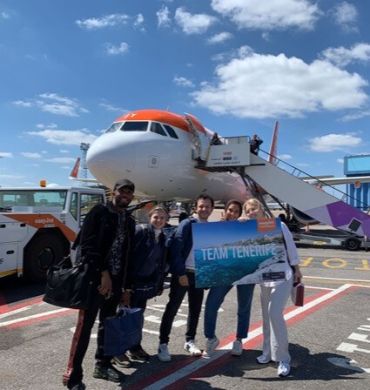 The SDG Impact Lab Fellows travelling to Tenerife to undertake research on sustainable tourism and food waste in the hospitality sector
The SDG Impact Lab Fellows travelling to Tenerife to undertake research on sustainable tourism and food waste in the hospitality sectorSDG Impact Lab Fellow, Laura Ballerini, a PhD Candidate in International Development, talks about how the team went about it: ‘We carried out mixed-method research and relied on a two-pronged approach. The first was a quantitative survey which we sent to a sample of 85 hotels in Tenerife to ascertain pre-existing approaches to sustainability and current food waste management mechanisms.
‘The second approach involved in-depth, semi-structured interviews with hotel directors, managers, and staff. These interviews aimed at gaining greater insights into the experiences and practices used by hotels to tackle food waste. Interviews were often accompanied by what we called ‘kitchen-based ethnography’, which essentially consisted of visits to hotel kitchens and long, informal conversations with chefs and kitchen staff.’
The team also engaged with a wide range of stakeholders with expertise in food waste, including leading researchers from local universities, public officials, private-sector experts, and representatives of local NGOs.
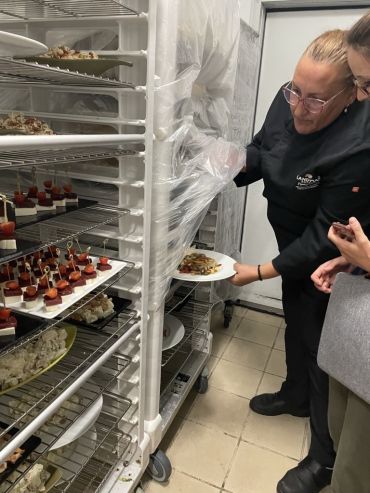 The team visited hotel kitchens to understand more about current food waste management practices
The team visited hotel kitchens to understand more about current food waste management practicesDesmond Okumbor, who completed the Lab Fellowship alongside an MSc in Politics Research, describes the value of key stakeholder engagement: ‘Presenting to stakeholders proved to be an informative and enlightening experience. During this process, we were afforded the opportunity to gain an in-depth understanding of the critical issues at hand, which in turn allowed us to effectively identify and evaluate potential areas where our contributions could provide substantial value.’
Their research revealed that 18% of food waste in Tenerife was generated by the hospitality sector alone and that most hotels on the island had limited to no measures in place to adequately quantify the amount of food waste they generated.
The team recommendation was a partnership with Winnow, a UK tech company, to provide AI solutions to enable hotels and resorts in Tenerife to measure and prevent food waste. They pitched their business case to easyJet holidays in July 2022.
 Laura (right) and Desmond (left) conducting interviews about sustainability and food waste with a hotel director (middle) in Tenerife.
Laura (right) and Desmond (left) conducting interviews about sustainability and food waste with a hotel director (middle) in Tenerife. Based on the Oxford team’s recommendations, easyJet holidays has now formed a first-of-its-kind partnership with Winnow for the launch of a pilot programme that will monitor the reduction of food waste at one of their most popular hotels, the Bahia Principe Sunlight Costa Adeje resort in Tenerife.
Using technology similar to that of driverless cars, Winnow’s AI tools learn to ‘see’ food being wasted through a connected terminal with a motion camera. Data is shared with hotel teams who receive reports that pinpoint waste, giving them the insight to make operational improvements. Typically, kitchens using this form of AI solution see food waste halved within 12-18 months.
Project team member Desmond Okumbor explains: ‘AI Winnow is a smart solution to food waste because it leverages AI technology to provide automated data collection, insights and recommendations, real-time feedback, and cost savings for businesses. By helping businesses to reduce their food waste, it can also contribute to reducing the environmental impact of food waste.’
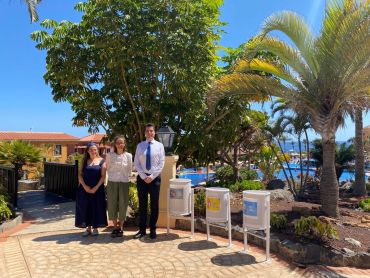 Ruby-Anne Birin (far left) and Laura (second from the left) and the Deputy Manager of the Bahia Principe Sunlight Costa Adeje resort
Ruby-Anne Birin (far left) and Laura (second from the left) and the Deputy Manager of the Bahia Principe Sunlight Costa Adeje resortLaura Ballerini, a PhD Candidate in International Development, said, ‘It was an immense joy to see that the research efforts my team put into unpacking the major issue of food waste informed the launch of a first-of-its-kind pilot programme with the potential to make a substantial, tangible impact!’
MPP+MBA student Diego Rojas-Arancibia reflects positively on his experience as a Lab Fellow: 'I had a great time working with eJh. We were able to lead our own research, and work on something that can achieve real impact. Moreover, without the field research, we would not have been able to understand hotels' needs. Having a combination of training and field research helped us not only to come up with a strong project, but also to learn different leadership skills’.
Following the successful outcome of the first year of the SDG Lab’s Sustainable Tourism Programme, a second cohort of Oxford students are undertaking Lab Fellowships to develop strategic and destination-based projects to help make easyJet holidays an industry leader in sustainable tourism.
Established in 2021, the SDG Impact Lab brings together the research expertise of Oxford University with partners across industry sectors, to address the most pressing challenges of our time. The Lab’s programmes enable talented graduate students to collaborate with non-academic partners to identify creative, interdisciplinary solutions that advance the UN SDGs.
Find out more about the SDG Impact Lab.
On World Malaria Day 2023, the global fight against malaria has hit a critical point in Africa. Recent studies have confirmed that malaria parasites resistant to artemisinin have emerged in Rwanda, Uganda and the Horn of Africa.
Artemisinin-based combination therapies (ACTs) are the first line treatment for malaria and there is no immediate replacement available. The loss of ACTs will put millions of Africans, mostly children under the age of 5, at risk of drug-resistant malaria infection and death.
One possible solution?
Adding a third drug to current ACT drug combinations. These Triple ACTs or TACTs have been found in clinical trials in Asia to be highly efficacious even in places where ACTs were failing.
'It is so much easier to prevent antimalarial drug resistance than to try and contain it. We are in danger losing of our current antimalarial drugs to resistance,' said Professor Sir Nick White, University of Oxford Professor of Tropical Medicine based at the Mahidol-Oxford Tropical Medicine Research Unit (MORU), in Bangkok.
'Triple artemisinin combination treatments [TACTs] will protect against resistance and help ensure that these drugs remain effective until new drugs arrive in 5-10 years time,' said Professor White.
Before TACTs can be widely deployed in Africa, however, their efficacy, safety and tolerability must be confirmed in African populations, especially children.
To that end, the Development of Triple Artemisinin-based Combination Therapies (DeTACT) trial is studying in eight African and two Asian countries two new TACTs - Artemether+lumefantrine+amodiaquine and Artesunate+piperaquine+mefloquine - to generate evidence that they are safe and effective malaria therapies.
The DeTACT project has also conducted modelling, ethics and market positioning studies to support their use in Africa and thereby prevent or delay the emergence of artemisinin and multi-drug resistant malaria.
'The DeTACT project aims to provide the necessary evidence that TACTs can both delay antimalarial drug resistance to existing drugs, and be an effective treatment for multidrug resistant infections. DeTACT will also deliver a product to market, and engage with national and global policy makers and stakeholders to discuss the potential position of TACTs in the mix of antimalarial drugs,' said University of Oxford Professor Arjen Dondorp, DeTACT project Principal Investigator.
Led by University of Oxford-affiliated researchers based at MORU in Bangkok, and funded by UK Aid administered through the Foreign, Commonwealth and Development Office (FCDO), the DeTACT trial has recruited over ~1800 patients as of April 2023 , with recruitment and follow-up completed in Niger and Nigeria, and no major or unexpected safety signals detected.
Once recruitment and follow-up are completed at the end of 2023, DeTACT investigators will present results in April 2024. Prior to that, they aim to present interim findings at a DeTACT symposium in October 2023 at the American Society of Tropical Medicine and Hygiene (ASTMH) 72nd Annual Meeting in Chicago, USA.
The first modelling study to project the impact of TACTs in preventing or delaying artemisinin resistance, led by Associate Professor Ricardo Aguas, University of Oxford, and Associate Professor Maciej Boni, Pennsylvania State University, has been completed and will soon be published in the prestigious journal, Nature Communications.
'These DeTACT modelling studies and market positioning studies generate data that will be crucial in our efforts to effectively introduce TACTS and to project the impact and cost-effectiveness of TACTs in preventing the spread of artemisinin resistance. Along with the clinical trial, these studies constitute a comprehensive assessment of the expected advantages and potential barriers to the large-scale use of TACTs,' explained Dr Chanaki Amaratunga, DeTACT Project Coordinator.
The DeTACT project has engaged malaria stakeholder engagement officers to communicate directly with National Malaria Control Programmes (NMCPs) to present to them to the DeTACT project and TACTs in general. Presentations on DeTACT and TACTs have been made at the RBM Partnership to End Malaria Case Management Working Group and the Seasonal Malaria Chemoprevention (SMC) Alliance Annual meetings. These efforts have led to significant interest from all parties in participating in future research and exploring the roll-out of TACTs in their countries.
To make TACTs available as quickly as possible where they are most needed it is critical to work with the pharmaceutical industry on the co-formulation. MORU has signed a memorandum of understanding with Fosun Pharma, China, and the Medicines for Malaria Venture (MMV) to develop and pre-qualify fixed-dose combinations of artemether-lumefantrine-amodiaquine, prior to deploying them across Africa.
'The DeTACT trial will generate data not only on the efficacy and safety of TACTs but also on the pharmacokinetics of each of the drug components, including in malnourished children – a particularly vulnerable sub-population. In addition, there will be cutting-edge analyses, combining clinical trial data with that from whole genome and transcriptome studies, to improve our understanding of artemisinin and antimalarial drug resistance,' said Dr Mehul Dhorda, DeTACT-Africa Coordinator.
Further reading
Market Formation in a Global Health Transition.
Triple Artemisinin-Based Combination Therapies for Malaria - A New Paradigm?
A statistical analysis of 650 UK spinouts between 2010 and 2021 shows that the university proportion of equity share has a limited effect on multiple fundraising factors including the probability of spinouts raising equity, the amount of funding raised, and the market valuation of a spinout after it has received funding.
The study, released last week by the Saïd Business School at the University of Oxford, provides a UK-wide analysis of UK spinouts where a university owns at least a 1% stake of founding equity.
The results speak for themselves, there are some specific effects but the broad-brush argument, that higher university stakes make spinouts unfundable, is not supported in the data.
Professor Thomas Hellmann
The paper’s lead author, Thomas Hellmann, DP World Professor of Entrepreneurship and Innovation at the Oxford Saïd Business School, said, ‘This often-heated debate about a university’s stake in their spinouts happens in a data vacuum, based on opinion and anecdote. We are addressing this gap by analysing systematic data on the relationship between university stakes and subsequent fundraising outcomes. The results speak for themselves, there are some specific effects but the broad-brush argument, that higher university stakes make spinouts unfundable, is not supported in the data.’
The paper entitled ‘How does equity allocation in university spinouts affect fundraising success? Evidence from the UK’ highlights that the average university equity share is 31% and declining, with the University of Oxford’s equity share at 20%, well below the UK average reported. The finding also suggest that the more resources available to university technology transfer offices to spend on registering IP, the higher the number of spinouts are created.
Oxford University Innovation’s CEO, Matt Perkins, said: ‘We welcome this timely UK-wide study and the rigour of the analysis. University Technology Transfer Offices provide tremendous support to create spinout companies by assessing market potential, registering and covering the costs of intellectual property, advising on investment options, and supporting the creation of management teams. We want to see sustained success for the spinouts created and have supported our founders by reducing the University’ founding equity share to 20%, speeding up the creation of companies and reducing the burden of negotiation.'
We remain committed to foster innovation and entrepreneurship to maximise the global impact of the University’s research and expertise and have delivered this through recently reaching a milestone of 300 companies created.
Matt Perkins, Oxford University Innovation
The analysis highlights that less than five per cent of university spinouts in the UK ever raise more than £25 million. This data suggests the debate should focus less on equity share and more on creating more attractive investment opportunities for UK spin outs to scale up exponentially.
The study shows there is no statistically significant impact of a university’s share on venture capital investment in biomedical and engineering spinouts. It highlights a very minimal negative effect of university share on the probability of raising venture capital in less scientific spinout sectors such as IT.
Professor Chas Bountra, Pro-Vice-Chancellor for Innovation at the University of Oxford said: ‘Oxford remains at the forefront of the UK’s university innovation economy thanks to our researchers and the commercialisation potential of their work. We continue to contribute to the UK’s innovation economy by reinvesting our university returns into funding further research innovation and by aligning our commercialisation approaches with our founders and partners in industry, the investment community, government, and the wider ecosystem.'
Growth of University of Oxford spinouts, 1959 - 2022
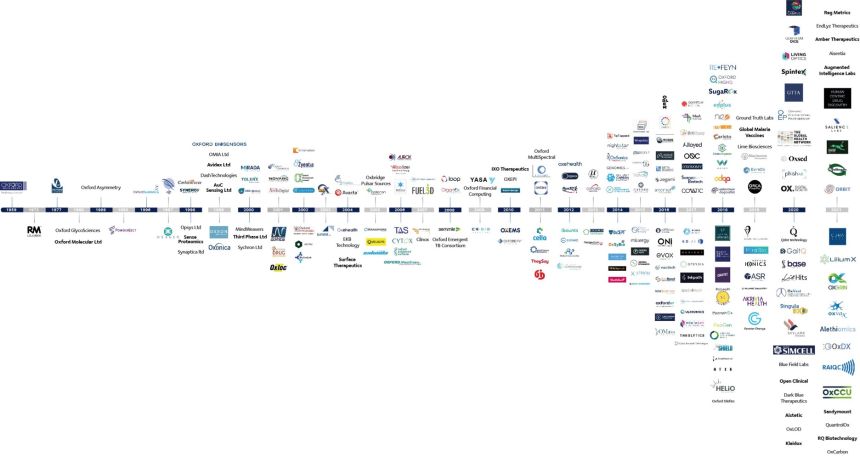 Growth of Oxford's spinouts, 1959 - 2022
Growth of Oxford's spinouts, 1959 - 2022At this year's Skoll World Forum Oxford University Innovation (OUI) showcased five social ventures from the University of Oxford changing lives and impacting the environment.
The University’s support for social ventures through OUI started in 2018. Since then 18 social ventures have been created, positively impacting society and making a difference in line with the UN’s Sustainable Development Goals. Discover five social ventures making waves below:
Greater Change: Alleviating homelessness through empowerment
Greater Change is revolutionising how we approach homelessness by providing financial planning support and micro grants to help those in need overcome financial barriers. With over 670 people supported and 80% now in stable housing, this unique approach has proven to be effective in helping those experiencing homelessness get back on their feet. The best part? Greater Change’s approach is scalable and can quickly plug into partners across wide geographies.
Wise Responder: Creating multidimensional wellbeing
Wise Responder is empowering social investments and sustainable human development goals by providing social metrics for financial institutions, investors, companies, and governments to tackle the world’s declared number one goal: United Nations SDG1 – No Poverty. By identifying deprivations at the individual and household levels, including health, education, and living standards, Wise Responder is making a significant impact on poverty reduction. The company is also helping to create sustainability-linked financing and investment options for financial institutions, corporates, and investors eager to make a difference.
Rogue Interrobang: Using creative thinking to solve wicked problems
Rogue Interrobang is helping individuals and organisations unlock their potential and create a better world. With offerings that include creative thinking training, diversity workshops, and coaching, Rogue Interrobang has worked with high-profile clients like the Cabinet Office, HMRC and the Open University. Their products include Mycelium, a card game that promotes creativity, and books “Our Dreams Make Different Shapes” and “Lift,” are just a few examples of how Rogue Interrobang is helping individuals tap into their full potential.
SEREN: Delivering life-saving diagnostic solutions in Africa
SEREN is working to improve access to diagnostic solutions in lower middle-income economies, like Tanzania, where cancer, anaemia and inherited diseases are a major health problem. SEREN provides DNA-based tests for as little as $10, making life-saving diagnostics accessible to those who need it most. Their cloud-based data systems allow for remote analysis and rapid diagnostics by experts so that samples don’t need to be sent abroad and valuable data can be used to further research and the provision of patient solutions.
Nature-Based Insetting: Creating Sustainable Supply Chains for a Healthier Environment
Nature-Based Insetting is helping organisations implement evidence-based targets for mitigating and insetting impacts on climate, biodiversity, and society through nature-based solutions. By enhancing the value and resilience of supply chains, Nature-Based Insetting is making a positive impact on our environment and promoting socially just, nature-positive, and net-zero pledges. With collaborations like Reckitt for biodiversity and net-zero targets, Nature-Based Insetting is helping individual businesses make a significant impact on sustaining a healthy, functioning natural environment and a stable climate system.
The full portfolio of social ventures can be viewed here.
Contact a member of OUI's social ventures team with your questions.
- ‹ previous
- 5 of 247
- next ›
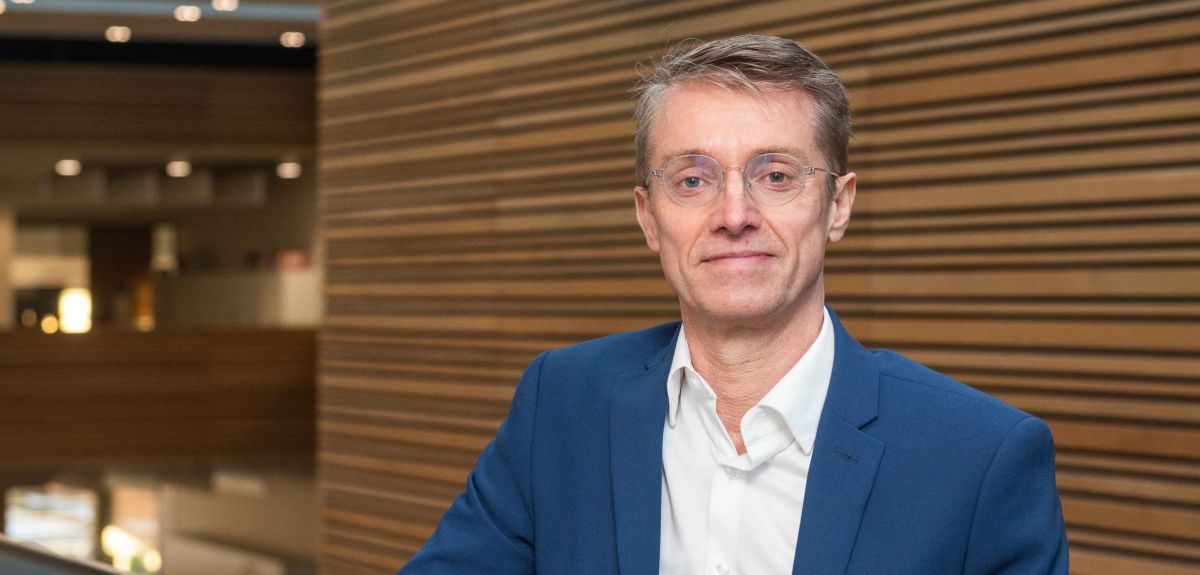
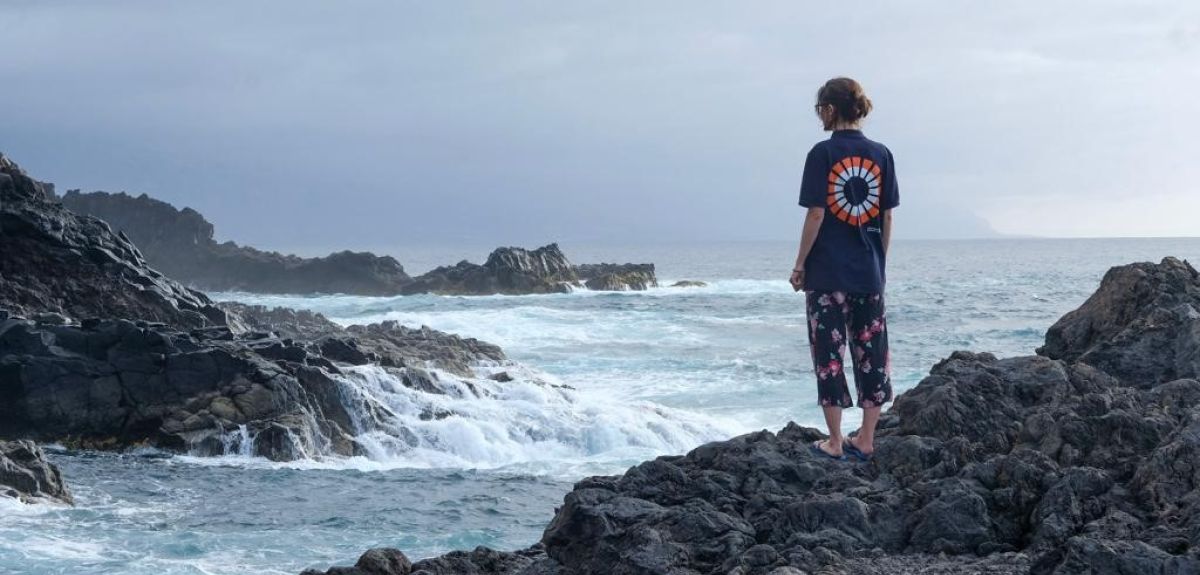
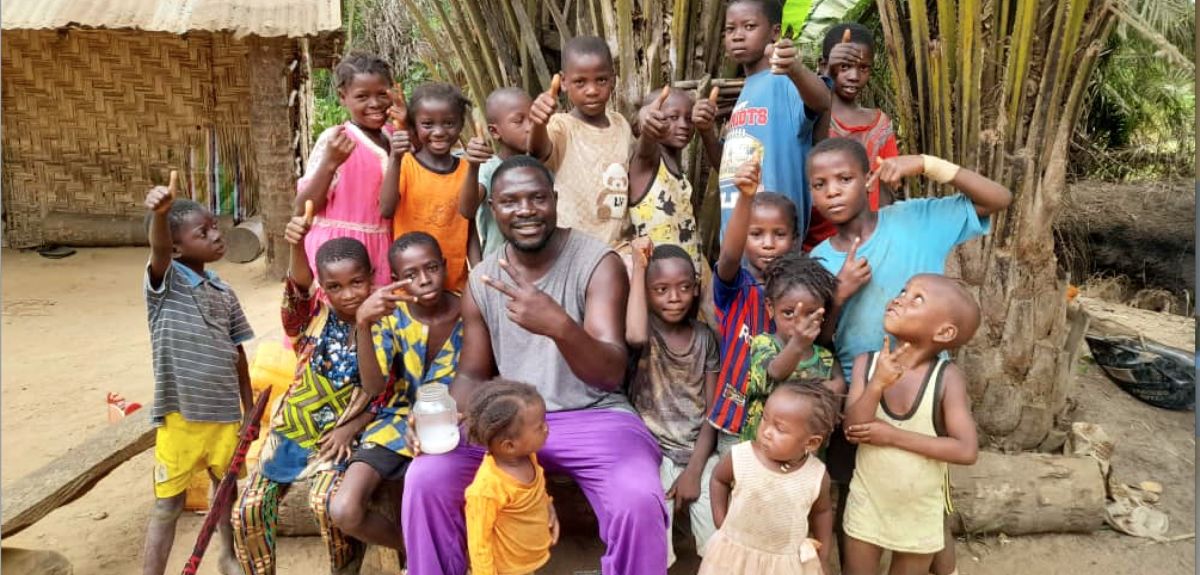
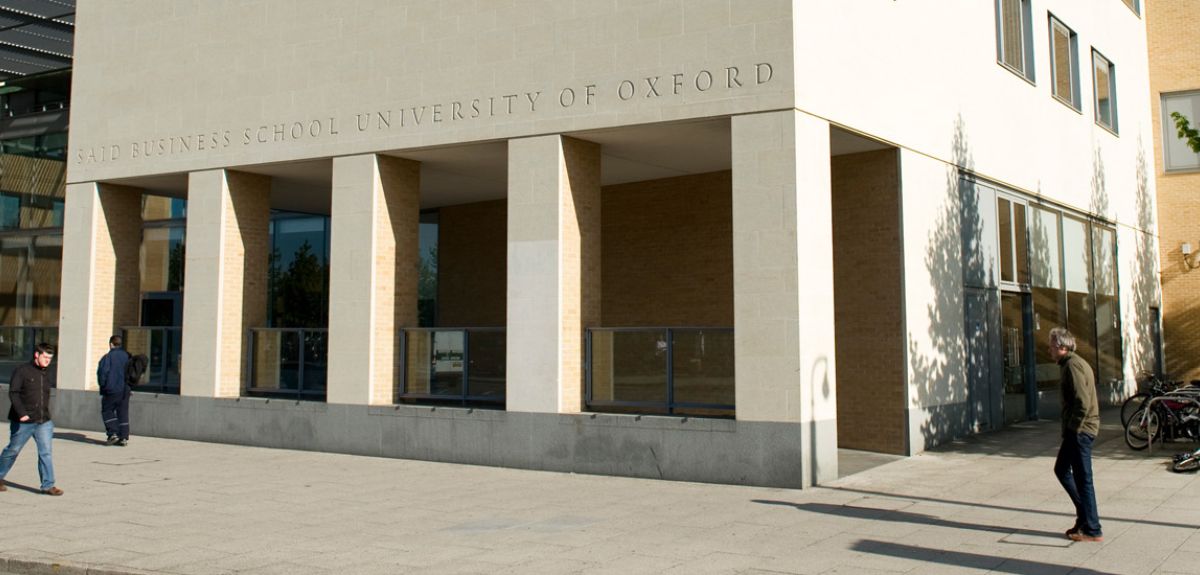

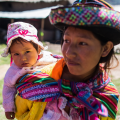 From research to action: How the Young Lives project is helping to protect girls from child marriage
From research to action: How the Young Lives project is helping to protect girls from child marriage  Can we truly align AI with human values? - Q&A with Brian Christian
Can we truly align AI with human values? - Q&A with Brian Christian  Entering the quantum era
Entering the quantum era Can AI be a force for inclusion?
Can AI be a force for inclusion? AI, automation in the home and its impact on women
AI, automation in the home and its impact on women Inside an Oxford tutorial at the Museum of Natural History
Inside an Oxford tutorial at the Museum of Natural History  Oxford spinout Brainomix is revolutionising stroke care through AI
Oxford spinout Brainomix is revolutionising stroke care through AI Oxford’s first Astrophoria Foundation Year students share their experiences
Oxford’s first Astrophoria Foundation Year students share their experiences DPhil student, Frankco Harris, reflects on his unique journey to Oxford and future plans
DPhil student, Frankco Harris, reflects on his unique journey to Oxford and future plans Oxford undergraduates reflect on their first term
Oxford undergraduates reflect on their first term